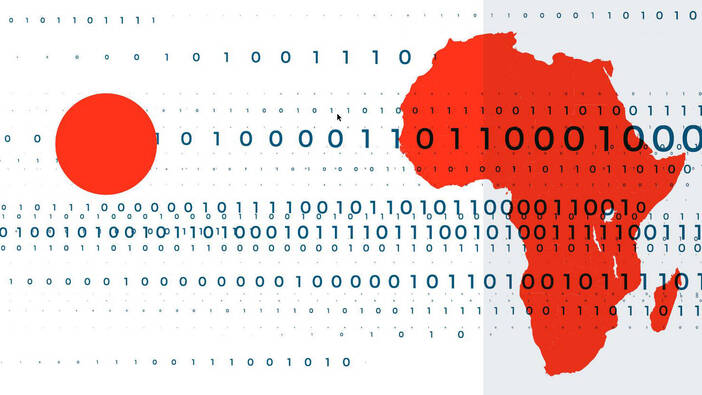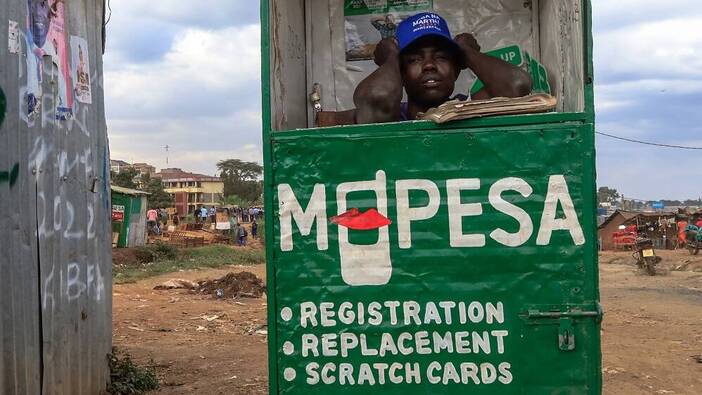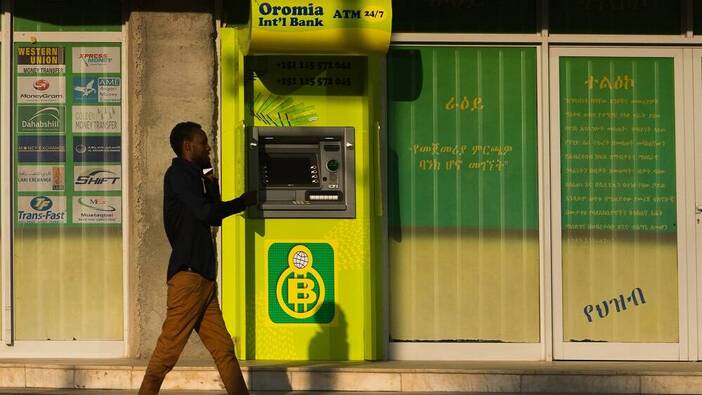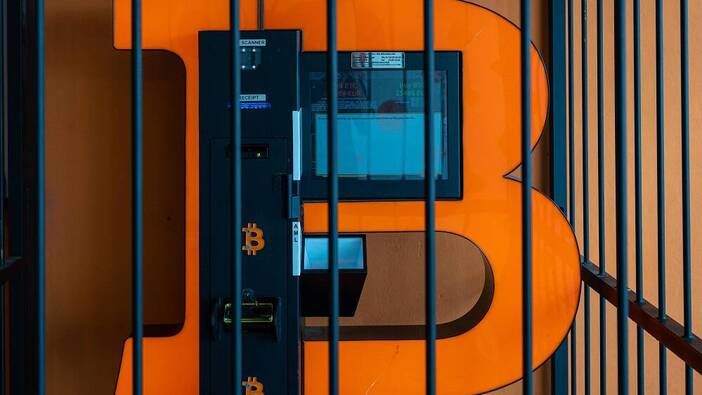
The last decade has witnessed a veritable revolution in how we conceive of and use money. The rise of cryptocurrencies, mobile payment apps, and the growing convergence between Big Data and Big Finance has changed the way we earn, spend, and invest, and reshuffled the banking industry. Cash — the primary means of everyday exchange for centuries — increasingly feels like a thing of the past.
Brett Scott is a South African economic anthropologist and former financial broker in the City of London. He regularly features in the Guardian, CNN, and other major news outlets, exploring the politics of money systems, finance, and digital technology.
What does this transformation mean for producers, consumers, and ultimately for workers? Particularly in parts of the world where informal employment dominates and many people still do not have access to traditional banking services, how will the disappearance of cash affect their daily lives? For all of the supposed benefits of this bold new age, what do we risk losing?
Brent Scott, author of Cloudmoney: Cash, Cards, Crypto, and the War for our Wallets, spoke with Fabio De Masi for the Rosa Luxemburg Foundation about these questions and more. The Left, Scott argues, cannot afford to sit these changes out — it must understand them and develop its own, progressive plan for digital finance in the twenty-first century, or risk being left behind.
In your recent book, you argue that the reach of corporations into our lives via cards, apps, and data technology poses a great danger to society as Big Data meets Big Finance. What are the main threats of a cashless society in your opinion? What risks do you see in terms of the market and political power of the digital finance corporations?
A “cashless society” is basically an economy in which all transactions, no matter how small, have to go via very large Big Finance and Big Tech firms. This transfers an enormous amount of power to them, and makes banks that were already “too big to fail” even bigger, which in turn increases their already large political power within our society. They gain a huge amount of our personal data from the digital payments system that they run, and the digital payments infrastructure becomes a potential means via which to exert new forms of control and censorship, on the part of both states and corporations.
The digital payments infrastructure also lacks resilience — when your entire economy depends on Visa and MasterCard, a power outage, cyber-attack, or systems failure can bring all commerce to a halt. Moreover, these systems can be deeply exclusionary: not everyone can access them, and many people don’t want to have to be dependent upon them, but in a cashless society you'd be fire-walled out of the economy if you were not able to — or did not want to — become totally dependent on digital systems.
Finally, these systems often represent an attack on small-scale informal local economies: in a cashless society, every small transaction — whether it be a donation to a busker, a child trying to informally sell lemonade, or friends putting money in to play poker together — will have to go via a large formal corporate intermediary, who’ll get richer off activities that really should remain informal. Cash basically provides us with the ability to not be totally dependent on Big Finance-Tech, and with that protects privacy, autonomy, resilience, inclusivity, and small-scale informality.
What kind of broader policies are needed to enable people in the informal economy to gain access to financial infrastructure without losing complete data sovereignty, or being overcharged or discriminated against (for example paying a high insurance premium because their personal poverty-related consumption reveals an unhealthy diet)?
Our global economy is de facto dominated by large-scale transnational corporations, and all of us at some level are captured by this system of “corporate capitalism”. One of the perverse elements of this, though, is that if you lack access to those large-scale corporate systems, you are said to be “excluded” and in need of “inclusion”.
What is called “financial inclusion” then, is often the process of trying to on-board people into dependence upon large-scale Big Finance firms, and in the neoliberal era many nation states have seen it as their job to on-board poorer people into firms like Visa, MasterCard, and the banking sector, rather than building strong public alternatives. I’m sure there are many specific regulations we could try to put in place to try make “inclusion” non-predatory, but before we focus on that, we must seriously think about providing public alternatives to corporate domination.
To claim that salvation can be reached through speculating on volatile assets is extremely irresponsible, but a lot of prominent crypto influencers make this claim all the time.
It’s also important to actually value informal economies — many people love informal economies, and don’t like being told that they are “undeveloped” because they rely upon each other rather than relying upon US corporations. We also need to showcase alternative types of non-corporate private-sector finance, such as cooperative finance and small-scale alternative currency and credit systems, all of which have the ability to offer more empowering ways for people to access finance.
What is your take on crypto assets? What purpose do they serve, and do you see any need to regulate them? Do you see the risk that crypto bubbles may spill over into the broader financial economy, or not really?
The crypto space is very broad now, but in general most so-called “crypto-currencies” are actually just limited-supply digital collectibles that can be bought and sold for money. In that sense, they’re really in the category of investment assets, much like shares, real estate, or rare artwork.
Unlike most investment assets, though, they are highly transferable, which means they can easily be swapped for other things via a process called “countertrade”. Countertrade is the process by which you use a non-monetary object for exchange, by looking at its monetary resale price. So, for example, if a meal in El Salvador costs 20 dollars, and I know that the current dollar resale price of 0.00084 of Bitcoin is 20 dollars, then I can use 0.00084 Bitcoin to “pay” — or more accurately, countertrade — for that meal. In reality, I’m paying for the meal with the implicit US dollar resale price of the Bitcoin, but it may superficially look like the Bitcoin is the “money”.
This has also caused a lot of confusion in regulatory circles, as they struggle to classify whether crypto-tokens are assets or money, when in reality tokens like Bitcoin are “counter-tradable collectibles”, which is to say, assets with a certain money-like feel. In reality, they ride on top of the monetary system, rather than competing with the monetary system, but in so doing they also introduce some interesting new strategies for anyone who is trying to get around the dominant digital money system run by the standard banking sector and Big Tech.
So, it is possible, for example, that if you’re a political dissident, you could temporarily use crypto countertrade as a means of exchange to get around an authoritarian state. The major problem, however, is that there’s now a deeply self-serving crypto-trading industry, which is full of marketers who try to convince people in poorer countries that they can escape from poverty by doing crypto speculation.
There’s a very long history of this in capitalism, when trader-entrepreneurs try to pump up the price of assets that they hold and then sell them off in fragments to poorer people, who are often left holding them when the price crashes. To claim that salvation can be reached through speculating on volatile assets is extremely irresponsible, but a lot of prominent crypto influencers make this claim all the time.
You stress the importance of defending cash. However, to what extent do you see the danger of “tilting at windmills” as people make greater use of online shopping or payment technology with smartphones? Should the right to pay cash not rather complement the financial infrastructure of the future?
One of the best ways to see cash is as the “bicycle of payments”, with normal digital payments being like the “Uber of payments”. The bicycle is an older form of transport than Uber is, and yet the bicycle remains very “modern” in the sense that it brings a lot of benefits and helps to create an overall healthy transport system.
Uber may superficially appear to be convenient, but imagine if it were the only form of transport we had: the apparent “convenience” would very quickly begin to feel oppressive, as people realized that their entire ability to move was dependent upon a profit-seeking behemoth. In reality, large digital systems are only positive and convenient when they are complemented by alternative systems that create a balance of power. Right now, cash is crucial for maintaining a balance of power in the monetary system, and without it, the negative elements of the digital systems will come to the fore.
Because cash is being undermined, central banks are thinking about whether a new form of digital public money must be created.
It’s useful to explore the transport metaphor, because several decades ago the auto industry did everything possible to convince people that the “future” was all about cars, and it took a political-cultural movement to demand bicycle lanes and rights for cyclists. I think this is a really useful way to think about payments systems, too.
Right now, the digital payments industry — and the digital corporate sector more generally — behaves a bit like the 1950s car industry. Furthermore, it has created an ideology of cash being the “horse cart” of payments, and along with that comes the idea that cash will “inevitably” be “upgraded” by digital payments. In reality, though, we need a political and cultural movement to say that cash is the bicycle of payments, and that it is totally acceptable and desirable to have a non-corporate and non-digital form of money to keep a balance of power in the monetary system. In so doing we’ll create a much higher level of resilience, inclusivity, privacy, decentralization, and localization in our economic system.
What is your take on central bank digital currencies (CBDCs)? Will this rather complement going cashless or do you see it as a line of defence against financial corporations amassing too much data power?
I wrote a big piece recently on the politics of CBDC, where I cover different political perspectives on it, so anyone who wants to delve deeper into that should check that out.
One of the major reasons that central banks are being pushed towards experimenting with CBDC, however, is that our mainstream digital money is privately issued by the banking sector (think of units in your bank account as being like “digital casino chips”), but confidence in those “chips” is based upon the public believing they can be redeemed for cash, which is currently the only form of public money we can hold. But, because cash is being undermined, often deliberately, central banks are thinking about whether a new form of digital public money must be created. If they do so, though, they risk beginning to directly compete with the banking sector, which is not something the average central banker wants to do.
Nevertheless, for people on the political Left, this is potentially interesting, because — if it were designed correctly — CBDC could be used to dilute the power of the banking sector. In reality, though, current CBDC proposals are actually pretty conservative, and are being designed to cause minimal disruption to the banking sector (or even to promote the banking sector).
Furthermore, CBDC hype is unfortunately being used to bolster the idea that cashless society is “inevitable”, and it risks becoming a distraction from the crucial task of protecting and promoting the cash system. Unfortunately, many politicians have bought into the Silicon Valley ideology that digital automation is unstoppable progress, so many of them feel that it's politically impossible to promote cash (because cash doesn’t play well with automation), so they are more likely to feel that CBDC is somehow “futuristic”.





